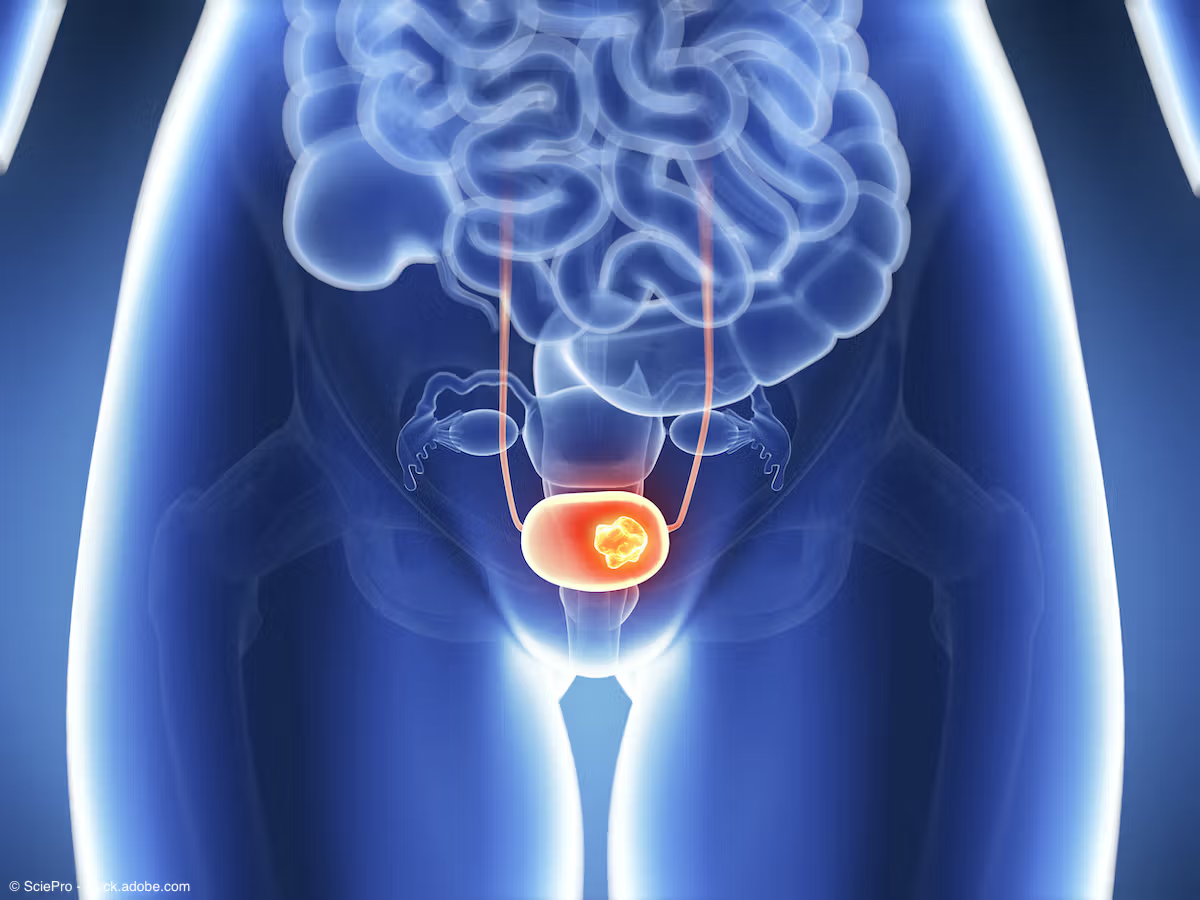Feature
Article
Expert discusses gender disparities in bladder cancer care
Author(s):
"In [bladder cancer], many women's diagnosis is delayed because their hematuria or microscopic hematuria is blamed on urinary tract infections rather than cancer," says Amy Luckenbaugh, MD.
In this interview, Amy N. Luckenbaugh, MD, highlights a course from the 2024 American Urological Association (AUA) Annual Meeting titled, “Optimizing Care for Women with Bladder Cancer: Female Cystectomy and Preservation of Sexual Function”. Luckenbaugh is a urologic oncologist and an assistant professor of urology at Vanderbilt University Medical Center in Nashville, Tennessee.
This transcription has been edited for clarity.
Amy N. Luckenbaugh, MD

Could you recap the AUA course, “Optimizing Care for Women with Bladder Cancer: Female Cystectomy and Preservation of Sexual Function”?
This session was hosted by Dr. Armine Smith, Dr. Yahir Santiago-Lastra, Dr. Maria Uloko, and I. The [impetus] of this session was because for men, we are very good at nerve sparing and talking about sexual function outcomes, and for women, we are somewhat less so. We know that women are less likely to be counseled about the sexual impact of the technique compared to men. That's reported both on the provider level but also by patients. It can have a real impact on their quality of life after cystectomy. So, the goal of this session was to discuss surgical techniques that can help optimize recovery of sexual function afterwards, both making sure that it is oncologically safe and safe sexually. The true highlight for me was learning from my colleagues, Dr. Santiago-Lastra and Dr. Uloko, who are not oncologists. Dr. Santiago-Lastra is urogynecology-trained and she's a urologist at University of California, San Diego. In Dr. Uloko's case, she is sexual medicine trained. Having their knowledge and background was a really great experience for Dr. Smith and I and those people in the course [who are oncologists] because it really provided a broader perspective of what we can do differently at the time of cystectomy and after cystectomy to help women recover their sexual function.
What are you hoping urologists take away from this course?
The big thing is to offer pelvic organ sparing surgery when it is oncologically appropriate. If women don't have hydronephrosis, or T3 disease, or locally advanced disease, offering sexual function bearing options, including pelvic organ sparing, if possible, is one thing that would be recommended. Again, obviously, we take the oncologic outcomes seriously, so we wouldn't do that in select cases. But if sexual function is a priority and they are oncologically appropriate, offering pelvic organ sparing surgery bearing either the uterus, the vagina, and the ovaries are beneficial. If sexual function is a priority, involving our colleagues from urogynecology or plastic surgery to help reconstruct the vagina if that is a priority for women should be really done more often.
Could you expand on some of the unique challenges that women face both in the diagnosis and treatment of bladder cancer?
In [bladder cancer], many women's diagnosis is delayed because their hematuria or microscopic hematuria is blamed on urinary tract infections rather than cancer. As a result, their treatment is delayed, and that can have worse oncologic outcomes for women.
Specifically for women with bladder cancer, what are some topics that you feel remain under covered or under discussed?
I think the sexual function outcomes after cystectomy [are underdiscussed]. There are some good studies that show often women aren't told or even asked about their baseline sexual activity and if it's a priority for them. Often women aren't told about the sexual side effects of the surgery, including a shortened vagina, potentially not usable vagina, decreased sensation, and potential pain with intercourse. [With] all of those things, we need to do a better job with counseling upfront. Then from there, we can decide who is a candidate for preserving these things vs not.
Newsletter
Stay current with the latest urology news and practice-changing insights — sign up now for the essential updates every urologist needs.








